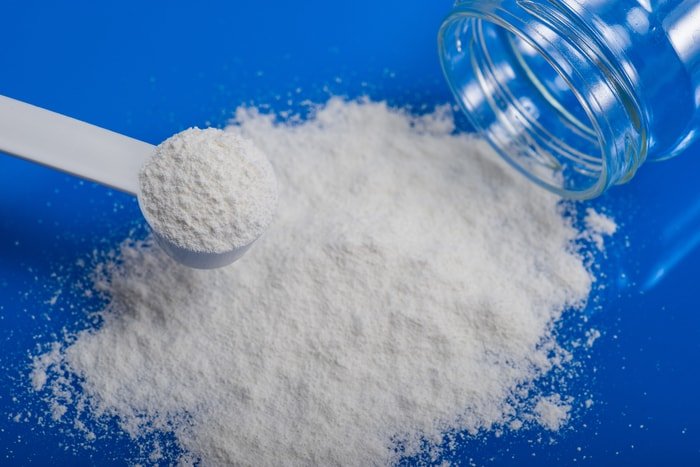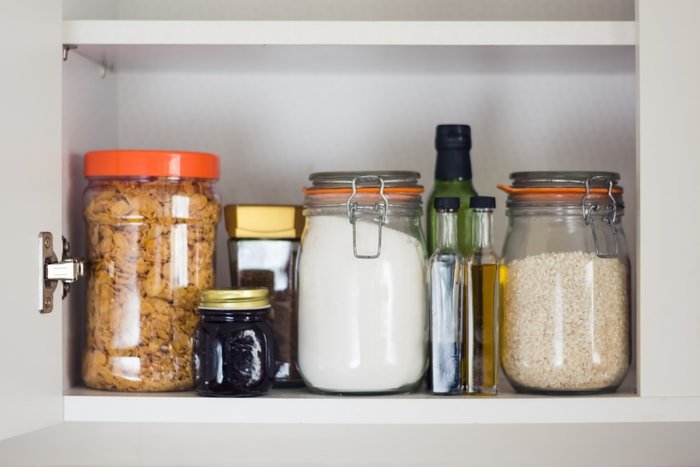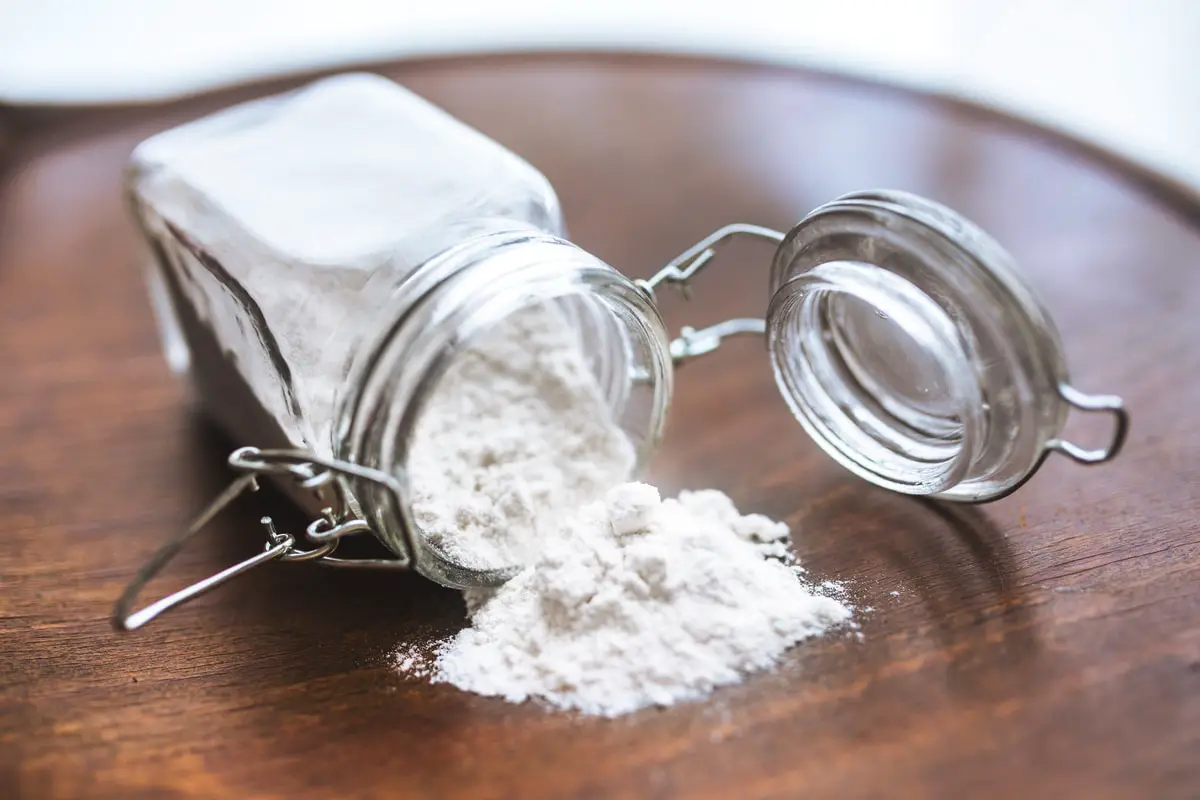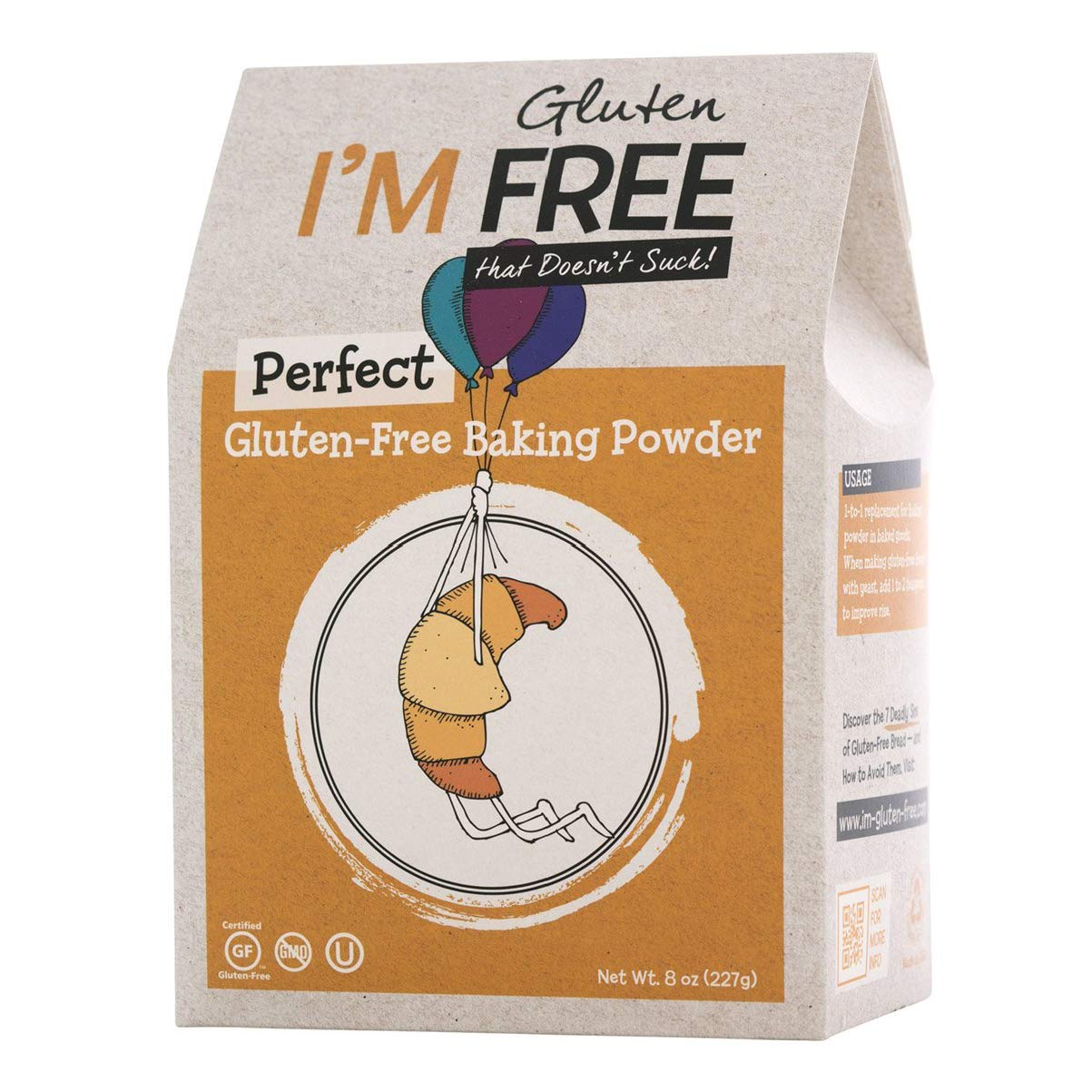Last Updated on October 18, 2024
Are you ready to know which is the best organic baking powder for cooking? Have you ever felt amazed by how a mixture of some powders, when combined and put in the oven, can become so fluffy and enjoyable to eat? We have to thank baking powder for that.
Baking powder is one of the staple ingredients in baking. It is one of the most common leavening agents used for cooking. It is used to increase the volume and soften the consistency of our favorite baked goods like biscuits, muffins, cookies, and cakes.
Table of Contents
History of Baking Powder
In 1856, the first baking powder was patented by a chemist named Eben Norton Horsford. Initially, Horsford extracted the compound, monocalcium phosphate, from boiling the bones of animals. This compound acted as the acid. It is then mixed with baking soda to activate the carbon dioxide, which is responsible for making baked goods expand and become fluffy and soft.
After a few years, the company of Horsford decided to lower the cost of extracting monocalcium phosphate by mining it instead. He combined the two ingredients in one container and added cornstarch to absorb moisture. This stopped the elements to react prematurely.
Organic Baking Powder Composition
Baking powder is commonly composed of three ingredients:
- A base
- An acid
- A filler or a buffering element
The base of baking powder is sodium bicarbonate or a baking soda. For the acid component, the most commonly used acid is the cream of tartar, though other manufacturers use other kinds of acids.
Cornstarch is the most common filler or buffering element used and it is responsible for preventing the premature activation of the acid and the base when combined. Since organic farming is the new thing now, most manufacturers use natural cornstarch.
All these three ingredients should be in dry forms and mixed in appropriate proportions and then packed as one product.
You have to consider that not all manufacturers of baking powder use the same ingredients in formulating their products. To be more advantageous than the other products available, most manufacturers have leveled up their products and made sure that only healthy and safe ingredients are used in the production of the baking powder.
Most manufacturers nowadays use organic ingredients and ensure that they are providing the best organic baking powders in the market. Most baking powders are classified as gluten-free, aluminum-free, and corn-free.
Baking Powder vs. Baking Soda
In most instances, baking soda is interchanged with baking powder.
Baking soda, just like baking powder, is also a leavening agent used to make baked goods rise. However, the chemical composition of each is slightly different than the other.
Baking soda, formally known as sodium bicarbonate, is the base material. It is a single-ingredient product. It needs to be combined with an acid ingredient and liquid to be activated. Once activated, it produces carbon dioxide.
Compared with baking soda, baking powder, as mentioned above, is a complete mix leavening agent already. You may check this video to be able to understand the difference between baking powder and baking soda fully.
Varieties of Baking Powder
As mentioned above, manufacturers use different ingredients in producing their baking powders. Listed below are some of the varieties of baking powder that are available in the market.
-
Single-acting Baking Powder
This variety is a basic baking powder that is composed of baking soda and one dry acid. As soon as the liquid is mixed with the baking powder, carbon dioxide bubbles are released. Since it will only react once, the cook should be quick in putting the dough or batter in the oven. It should be done before the bubbles escape. Food manufacturers typically use this variety.
-
Double-acting Baking Powder
This variety is the most commercially available in the market. It is the same with the single-acting baking powder except that this one uses two dry acids.
The first dry acid reacts when the powder is combined with wet ingredients. The second dry acid reacts when the baking powder has been heated. This variety is usually preferred for household use since it gives the cook more time in preparing the baked good dough or batter.
-
Tartrate Baking Powder
This variety uses tartaric acid and cream of tartar as the dry acids. When using this variety of baking powder, the baked goods should be cooked speedily before the carbon dioxide escapes, otherwise the baked goods will turn out flat.
-
Phosphate Baking Powders
The dry acid used in this variety is calcium phosphate. It reacts somewhat the same with the tartrate baking powder though this one is a little slower.

-
SAS Baking Powder
SAS stands for Sodium aluminum sulfate. As the name goes, this variety uses aluminum sulfate as the dry acid. It is most often used in small proportions only since it can give out a bitter taste if there’s too much SAS mixed.
Though there have been no significant pieces of evidence showing that ingesting aluminum through baking powder poses a considerable risk to someone’s health, most manufacturers offer aluminum-free baking powders to prevent the metallic aftertaste that it creates. Usually, this aftertaste spoils the supposedly perfect baked goods.
-
Kosher for Passover Baking Powder
For this variety, the filler or buffering element used is potato instead of the commonly used cornstarch. The potato starch is considered to add a bit of tenderness to the baked goods.
Nutritional Benefits of Baking Powder
Aside from making our baked goods increase in volume and soften their texture, baking powder has its fair share of micronutrients that can help in the proper functioning of our bodies. It contains:
- Phosphorus- helps with the normal functioning of the cells.
- Calcium– helps in maintaining and improving the health of bones and teeth
- Zinc– helps strengthen the immune system and protects the cells
- Magnesium– helps in reducing fatigue and tiredness; improves mental health and nervous system
- Potassium– helps in keeping blood pressure healthy; makes sure muscles works properly and ensures the proper functioning of the nervous system
Proper Storage for Baking Powder
Most manufacturers advise consumers to finish the pack of baking powder within 6 to 12 months after opening. It must be sealed and stored in a cool and dry place. To make sure of its freshness, you can write the expiration date on the bottom of your container if you have to discard the original packaging.

How to Test Baking Powder?
If you happen to forget the expiration date of your baking powder, you can check if it’s still good by pouring 1/2 teaspoon of baking powder into 1/3 cup of warm water. Lightly stir the mixture. If the mixture is moderately fizzing, then it’s still fresh. If there’s no fizzing or reaction, then the baking powder is expired and should be discarded.
Where to Buy Organic Baking Powder?
Baking powders are readily available in any grocery store, usually in the baking aisle. But if you don’t have the luxury of time to go out and buy, fret not because they are also available to be purchased online. With the growing number of online shops or websites, searching for one will not be a problem.
Below are some of the best organic baking powders that you can purchase online. All these products are proven to have good quality and give favorable results. You may click on the brand noted to be able to see the detailed information for each product. Here’s a bulleted comparison for each product.
5 Best Organic Baking Powder Brands
I’m Free Perfect Gluten-Free Baking Powder
Pros:
- Gluten-free
- Corn-free
- Non-GMO
- Aluminum-free
- Certified Kosher by the Orthodox Union
Cons:
- Expensive
- High sodium content
- Large packaging
- Non-sealable container
Bob’s Red Mill Baking Powder
Pros:
- Double-acting
- Gluten-free
- Aluminum-free
- Certified Kosher by the Orthodox Union
- Competitive price
Cons:
- Plastic bag packaging
Argo Double Acting Aluminum Free Baking Powder
Pros:
- Double-acting
- Gluten-free
- Certified Kosher by the Orthodox Union
- Re-sealable plastic container
- Lid has leveler
Cons:
- Some containers don’t state, “Aluminum-free.”
Hain Pure Foods Featherweight Baking Powder
Pros:
- Sodium-free
- Gluten-free
- Aluminum-free
- Corn-free
Cons:
- High in potassium
- Expensive
- Not always available in the market
Rumford, Double Action Baking Powder
Pros:
- Double-acting
- Gluten-free
- Aluminum-free
- Non-GMO
- Zero Trans Fat
Cons:
- Expensive
Does Baking Powder Have to Be Organic?
As you probably already know, baking powder is a leavening agent that is added to baked goods to help them rise better, and usually consists of a combination of baking soda, an acidic ingredient, and a moisture-absorbing ingredient.
As its name suggests, organic baking powder is made with ingredients that are grown and processed according to organic farming standards. This indicates that no synthetic pesticides, fertilizers, or genetically modified organisms were used for its production. Some of us simply prefer to use organic ingredients for both, consumption and use because we believe they are more natural and environmentally friendly.
However, it is very important to emphasize that you don’t have to use only organic baking powder, as regular can be just as effective and probably much cheaper and more easily available. At the end of the day, you don’t have to think too hard, as choosing to use organic or regular baking powder is a matter of personal preference.
Is Baking Soda Inorganic Or Organic?
In a nutshell, sodium bicarbonate is nothing more than an inorganic compound. Inorganic compounds are chemical substances that aren’t generated from living creatures, and in addition, don’t include any carbon-hydrogen bonds. They aren’t classified as organic compounds since they are obtained from minerals and other similar non-living sources.
Furthermore, compounds of this sort are usually classified into two main types: elemental compounds made up of a single element and compounds made up of numerous elements. Baking soda falls into the latter type and is made up of sodium, carbon, and oxygen.
Is Baking Soda For Cleaning and Cooking The Same?
Yes, baking soda that is used for cleaning and cooking is the same compound. Now we will go into a little more detail.
As a leavening agent, baking soda is used to help baked goods rise. When combined with an acidic substance, such as vinegar or lemon juice, it emits carbon dioxide gas, causing the dough or batter to expand and become fluffier in texture. Baking soda is frequently used in cake, cookie, and bread recipes to give them a recognizable, airy, and cloudy texture.
Baking soda is well-known for its ability to neutralize acids and remove dirt and grime when used as a cleaning agent. It is suitable for cleaning a wide range of surfaces, including counters, tiles, and appliances. Baking soda is also a popular personal hygiene product because it can be used as a toothbrush, peeling, and deodorant. Give it a chance if you haven’t yet, you might be surprised.
However, if you plan to use it, always keep in mind that it is the same compound that has not been chemically modified in any way and that it can be used in different ways depending on the purpose.
Is Baking Soda Better For Cooking Or Cleaning?
To be honest, baking soda is a pretty versatile ingredient that has a wide range of uses. It is hard to decide whether it is better for cooking or cleaning, because it does its job well, no matter what it is intended for. It is not necessarily better for one purpose or another but is a versatile and useful ingredient that can be used in no less than a wide range of applications.
What Recipes Use Baking Soda?
Some common recipes that use baking soda include:
- Baking Powder Biscuits
Truth be told, they are not made only from soda but from a combination of baking powder and baking soda because that is the only guarantee that they will rise nicely and become soft and flaky, just the way they should be.
- Chocolate Chip Cookies
Although you might not think this is the case at first, baking soda is often used in these types of recipes to help spread the cookies evenly and achieve the characteristic chewy texture.
- Banana bread
It is used to give this sweet version of bread a moist and tender texture.
- Pancakes
In pancake recipes, baking soda is used to help the world’s most favorite breakfast to rise and become fluffy.
- Bread
Baking soda is frequently used in bread recipes to assist the dough in rising and becoming light and fluffy.
Conclusion
As you noticed, most of the products offer almost the same features and no one is far way more advantageous than the others. It’s a close fight. But, just like any other competition, there should be one that stands above the rest. Based on the product quality, ingredients used, cost, and availability, the best choice that we can say is Argo Double Acting Aluminum Free Baking Powder.
Aside from the apparent features, it comes with an enormous container, and the cost is competitive. You get value for your money. But the only drawback is, it is not corn-free. So those who have allergies to corn cannot use it. Withstanding that, so far, this is the best organic baking powder available for you.

Barbara is an environmental activist and sustainability advocate who loves living green and sustainable. She firmly believes in reducing her carbon footprint and has been making great strides towards achieving this goal. Barbara is a vegan and avid recycler and has been actively involved in community gardens and other green initiatives. She is passionate about spreading awareness about the importance of living in a sustainable and eco-friendly manner. Barbara is always looking for ways to make a difference in her community and beyond. She is a huge advocate for preserving nature and the planet for future generations.






